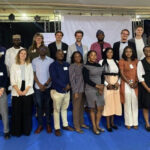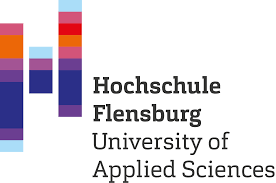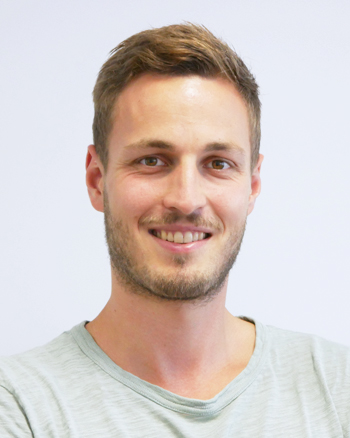
Workshops and training courses as part of PeopleSun in Nigeria
20. November 2023Master’s thesis: Grid-optimized use of flexibility in radial distribution grids based on an AC load flow model (Held 2023)
20. November 2023hyBit – hydrogen for Bremen’s industrial transformation

In the sub-project of the large-scale research project hyBit, RLI scientists are investigating the effects of a hydrogen electrolyser on the electricity grid in the Bremen area. The planned hydrogen hub or electrolyzer is at the heart of the project. It is intended to produce green hydrogen for a steelworks. It requires a lot of electricity to do this and therefore represents a large load for the power grid. On the other hand, however, it can also be operated flexibly to a certain extent and thus absorb feed-in peaks or reduce load at times of high residual load. By investigating the effects on the electricity grid, the final result will be to determine how the electrolyser can be used to benefit the system.
The team at RLI began the sub-project back in 2022. It was commissioned and coordinated by the University of Bremen. RLI will work together with researchers from Flensburg University of Applied Sciences to implement the tasks. As already mentioned, the sub-project is part of the larger hyBit project. Its overarching aim is to gather fundamental knowledge on the development of the hydrogen economy in northern Germany. The large-scale research project is being funded by the Federal Ministry of Education and Research with around 30 million euros.
Network analyses for hydrogen hub region
The project team is initially carrying out grid analyses for the Bremen region and the industrial port. Using various scenarios, the team is investigating the effects of operating the electrolyser on the surrounding electricity grid. The scientists are also analyzing the potential of a possible off-shore connection and the effects of additional industrial loads.
A high-resolution grid model is used to carry out the grid analyses. It is embedded in a clustered model for high and extra-high voltage throughout Germany. The researchers are building on the results of the eGo^n research project. In this project, RLI scientists investigated the effects of sector coupling on the electricity grid. Scenario data from the project will be expanded to include data from the hydrogen hub planned in the hyBit project and the offshore wind connections. The project team uses the open source tool eTraGo, which was also developed in the eGo^n project, for the grid calculations. The scientists use it to carry out grid analyses of high and extra-high voltage. In addition, grid expansion and flexibility requirements can be determined at these voltage levels. As part of hyBit, the tool is being expanded to include electrolyser models.
Knowledge transfer
In addition to the network analyses, knowledge transfer is another project objective. Researchers at the University of Bremen are to be introduced to the eGo^n data and the eTraGo network analysis tool and trained in its use through workshops.
The official website of the large-scale research project hyBit can be found here.
Project period: March 2023 - September 2024
The team at RLI began the sub-project back in 2022. It was commissioned and coordinated by the University of Bremen. RLI will work together with researchers from Flensburg University of Applied Sciences to implement the tasks. As already mentioned, the sub-project is part of the larger hyBit project. Its overarching aim is to gather fundamental knowledge on the development of the hydrogen economy in northern Germany. The large-scale research project is being funded by the Federal Ministry of Education and Research with around 30 million euros.
Network analyses for hydrogen hub region
The project team is initially carrying out grid analyses for the Bremen region and the industrial port. Using various scenarios, the team is investigating the effects of operating the electrolyser on the surrounding electricity grid. The scientists are also analyzing the potential of a possible off-shore connection and the effects of additional industrial loads.
A high-resolution grid model is used to carry out the grid analyses. It is embedded in a clustered model for high and extra-high voltage throughout Germany. The researchers are building on the results of the eGo^n research project. In this project, RLI scientists investigated the effects of sector coupling on the electricity grid. Scenario data from the project will be expanded to include data from the hydrogen hub planned in the hyBit project and the offshore wind connections. The project team uses the open source tool eTraGo, which was also developed in the eGo^n project, for the grid calculations. The scientists use it to carry out grid analyses of high and extra-high voltage. In addition, grid expansion and flexibility requirements can be determined at these voltage levels. As part of hyBit, the tool is being expanded to include electrolyser models.
Knowledge transfer
In addition to the network analyses, knowledge transfer is another project objective. Researchers at the University of Bremen are to be introduced to the eGo^n data and the eTraGo network analysis tool and trained in its use through workshops.
The official website of the large-scale research project hyBit can be found here.
Project period: March 2023 - September 2024
The RLI assumes the following tasks:
- Conducting workshops on the topics of network analysis, network planning and optimization with eTraGo and eGo^n data model.
- Support with the integration of own approaches and scenario data.
- Identification and implementation of adaptations for coupling the eTraGo tool with models developed in the hyBit project.
- Implementation of a simple electrolyzer model in eTraGo.
- Carrying out targeted analyses for various scenarios developed in hyBit for the operation of the electrolyzer, possible off-shore connection and additional industrial loads at the electrolyzer site.










